Italian Prime Minister Mario Monti approved major changes to the country’s labor laws last month, the latest of Italy’s attempts to overhaul its economy. In an email interview, Carlo Bastasin, a visiting fellow at the Brookings Institution who focuses on European politics and economics and author of “Saving Europe,” discussed Italy’s economy. WPR: What have been the major weaknesses of the Italian economy, with regard to its European and non-European trade partners? Carlo Bastasin: The two features that have distinguished the Italian economy are the high level of public debt and the low growth of the past 10 years. The […]
Economics & Business Archive
Free Newsletter
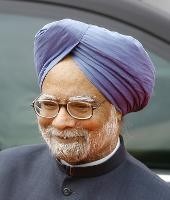
Launched in 1991 by then-Prime Minister Narasimha Rao, India’s “Look East” policy was long regarded by many as lacking in vision and substance. Yet as India and the Association of Southeast Asian Nations (ASEAN) prepare to mark two decades of formal relations later this year, there is much to celebrate. Given the recent advances New Delhi has made in its relations with its Southeast Asian neighbors, as well as with ASEAN as an institution, both parties can proudly toast the progress achieved thus far. But they should also use the anniversary as an opportunity to strengthen ties further. India has […]
Business groups from the U.S. and the European Union last week called on U.S. and European leaders to move forward with the creation of a barrier-free trans-Atlantic market. In an email interview, Fredrik Erixon, the director of the European Center for International Political Economy, discussed the prospects for a U.S.-European Union free trade agreement (FTA). WPR: What impact would a FTA have on U.S.-EU trade, and what sectors would be most affected? Fredrik Erixon: It would have a positive influence on trade, jobs and growth on both sides of the Atlantic. If you eliminate or reduce trade restrictions between two […]
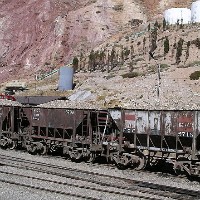
Peruvian Justice Minister Juan Jiménez’s appearance before the Inter-American Commission on Human Rights last week marked the latest challenge to President Ollanta Humala’s strategy of marrying mining-based growth with social development. Jiménez faced the commission Saturday to dispute a law proposed last year by local organizations concerned about environmental impacts from the $4.8 billion Conga gold and copper mine. Later this week, the country’s Constitutional Tribunal will also consider the constitutionality of a decision by the president of Cajamarca province, where the Conga mine is located, to declare the project “unviable.” Local communities argue that the mine will empty several […]
China reportedly suspended orders for Airbus aircraft this month in protest of the European Union’s emissions trading system. In an email interview, Miriam Schröder, managing director of the climate consulting firm Sinergi, discussed the European Union-China emissions dispute. WPR: What is the background of the dispute between the European Union and China over the EU’s emissions trading scheme (ETS), and how has it developed? Miriam Schröder: Since January 2012, aviation has been included in the EU ETS. Not only flights within Europe, but also non-European aircraft operators that fly to or from Europe have to comply with the EU ETS. […]
Venezuelan President Hugo Chavez recently returned home after his latest trip to Cuba to seek cancer treatment. In an email interview, H. Michael Erisman, a professor of international politics and Latin America at Indiana State University specializing in Cuban foreign relations, discussed Cuba-Venezuela relations. WPR: What is the recent history of the Cuba-Venezuela relationship? H. Michael Erisman: In a nutshell, the relationship has been extremely close in both the bilateral and the larger multilateral dimensions. The multilateral dimension refers to Cuban-Venezuelan cooperation in hemispheric affairs. The centerpiece project here is the Bolívarian Alliance for the Americas (ALBA), which seeks to […]
The political unrest that has gripped Syria over the past year, and the sanctions that resulted, have had a devastating impact on the country’s economy. Sanctions by the U.S. and the European Union have targeted members of the Syrian government, frozen international banking transactions and halted Syrian oil exports. And the resulting economic decline, which is just beginning to make headlines, has major implications not only for the Syrian government, but also for the Syrian people. Ayesha Sabavala, the Economist Intelligence Unit’s editor and economist for the Middle East and North Africa, explained that as the economy declines, the likelihood […]
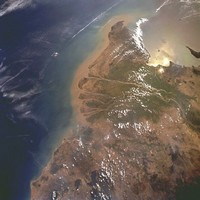
Editor’s note: This is the first of a two-part series on China’s geopolitical interests in the Mekong River Basin. Part I examines the politics and impact of hydroelectric projects on the Mekong River Basin. Part II will examine the security challenges to China’s efforts toward economic integration of the Mekong River Basin. Two decades after the Paris Peace Accord that ended the proxy war in Cambodia, the Mekong Basin has re-emerged as a region of global significance. The rapid infrastructure-led integration of a region some call “Asia’s last frontier” has created tensions between and among China and its five southern […]
Indian Minister of Commerce, Industry and Textiles Anand Sharma visited Hanoi earlier this month to discuss cooperation in energy, medicine and information technology with Vietnamese Prime Minister Nguyen Tan Dung. In an email interview, David Brewster, a visiting fellow at the Strategic and Defense Studies Center at the Australian National University and the author of “India as an Asia Pacific Power,” discussed India-Vietnam relations. WPR: How extensive are trade and diplomatic ties between Vietnam and India? David Brewster: India and Vietnam have a long-standing political relationship dating back to the 1960s, when India gave rhetorical support to North Vietnam’s fight […]
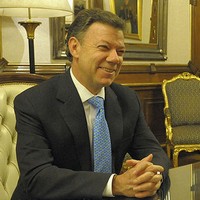
Sandwiched between OPEC members Ecuador and Venezuela, Colombia has for decades looked like an Andean misfit because it was not a major oil exporter. But when Venezuela’s foreign minister visited Bogotá in November, he reportedly asked his counterpart, “When is Colombia going to join OPEC?” Quietly, Colombia has become the fourth-largest oil producer in Latin America, after Venezuela, Mexico and Brazil. Today, Colombia produces nearly 1 million barrels of oil per day (bpd), almost double its output in 2005. By 2015, Colombia’s oil minister expects the country to produce 1.5 million bpd. Improved security is the most obvious reason for […]
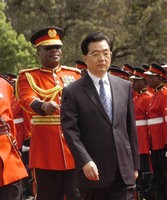
When Robert Zoellick recently announced that he won’t seek a second term as president of the World Bank, representatives of numerous emerging-market countries issued a flood of statements decrying America’s 66-year lock on the position. Meanwhile, the Chinese went out of their way within the organization to express their firm desire to have a commanding say in who succeeds Zoellick. Insiders are predicting that an American will still win the spot and that the Chinese simply want to exercise a showy veto over the proceedings. That would be too bad, because there are a host of good reasons why Washington […]
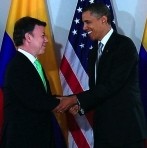
BOGOTA — Government and economic think-tank estimates may differ on the potential economic benefits of the recently approved Colombia-United States Free Trade Agreement, but one of the FTA’s goals has already been achieved: It has allowed the United States to reaffirm support for the Colombian government, still waging a nearly 50-year-long civil war against the FARC guerrilla insurgency and a two-decade battle against drug cartels. Clyde Prestowitz, president of the Washington-based Economic Strategy Institute, described the trade agreement as “a geopolitical tool in the guise of an economic deal.” For Tim Stater, an economic counselor at the United States Embassy […]
Spain’s Repsol and China’s Sinopec announced the discovery of a huge oil reserve off the coast of Brazil late last month. In an email interview, Mark Langevin, the director of the consulting firm Brazil Works, discussed Brazil’s offshore oil resources. WPR: What is the size and scope of Brazil’s offshore oil finds, and where do efforts to develop them stand? Mark Langevin: For decades Brazil and its national oil company, Petrobras, struggled to achieve energy security to fuel national development and a stable balance of trade. In 2006 this struggle ended with the discovery of a 4 billion to 8 […]
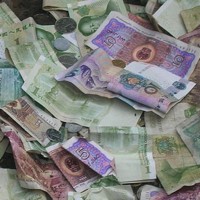
For more than three years, China has been gradually implementing a strategic plan to internationalize its currency, the yuan, with a central element of this strategy being to increase the yuan’s role in China’s cross-border trade settlement. To date, these efforts have been strikingly effective, as the “people’s currency” was used to settle nearly 10 percent of China’s international trade in 2011, up from essentially zero in 2009. Last week, it was reported that China is poised to take another significant step in promoting the yuan’s use in global trade settlement by extending yuan-denominated loans to the other BRICS nations: […]
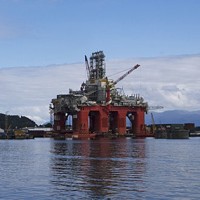
If you’re looking for a good example of an oxymoron, or at the very least of a counterintuitive situation, nothing works better than the famed “resource curse.” The idea that great natural wealth might in fact contribute to keeping a country poor has captured the public imagination precisely because it helps explain a phenomenon that is one of the great paradoxes of our time: Countries blessed with fabulous riches are often also cursed, perhaps inevitably, with grinding poverty. But the phenomenon with the catchy title deserves a closer, critical look, because recent evidence suggests that the potion for breaking the […]
South Korea signed a 20-year deal to import liquefied natural gas from Qatar during a visit by South Korean President Lee Myung-bak to the Persian Gulf state last month. In an email interview, Jae-Seung Lee, a visiting scholar at Stanford University’s Korea Studies Program and a professor at Korea University, discussed South Korea’s energy security. WPR: What is the breakdown of South Korea’s energy consumption, in terms of fuel types and sources? Jae-Seung Lee: Oil is still dominant in South Korea’s primary energy consumption, currently making up 39.7 percent, although this has decreased substantially from its peak of 52 percent […]
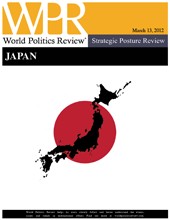
As an advanced industrialized democracy and the world’s third-largest economy, Japan is well-positioned to help shape the economic, security and institutional architecture of the Asia-Pacific as the region increasingly becomes the center of gravity in the international system. Yet this island nation is beset by several challenges, including anemic economic growth, public debt, an aging population, a declining birthrate and political paralysis that could complicate efforts to sustain its strategic and diplomatic weight. The earthquake and tsunami of March 11, 2011, illuminated some of these challenges, and the subsequent nuclear disaster brought energy security to the fore as the country […]
